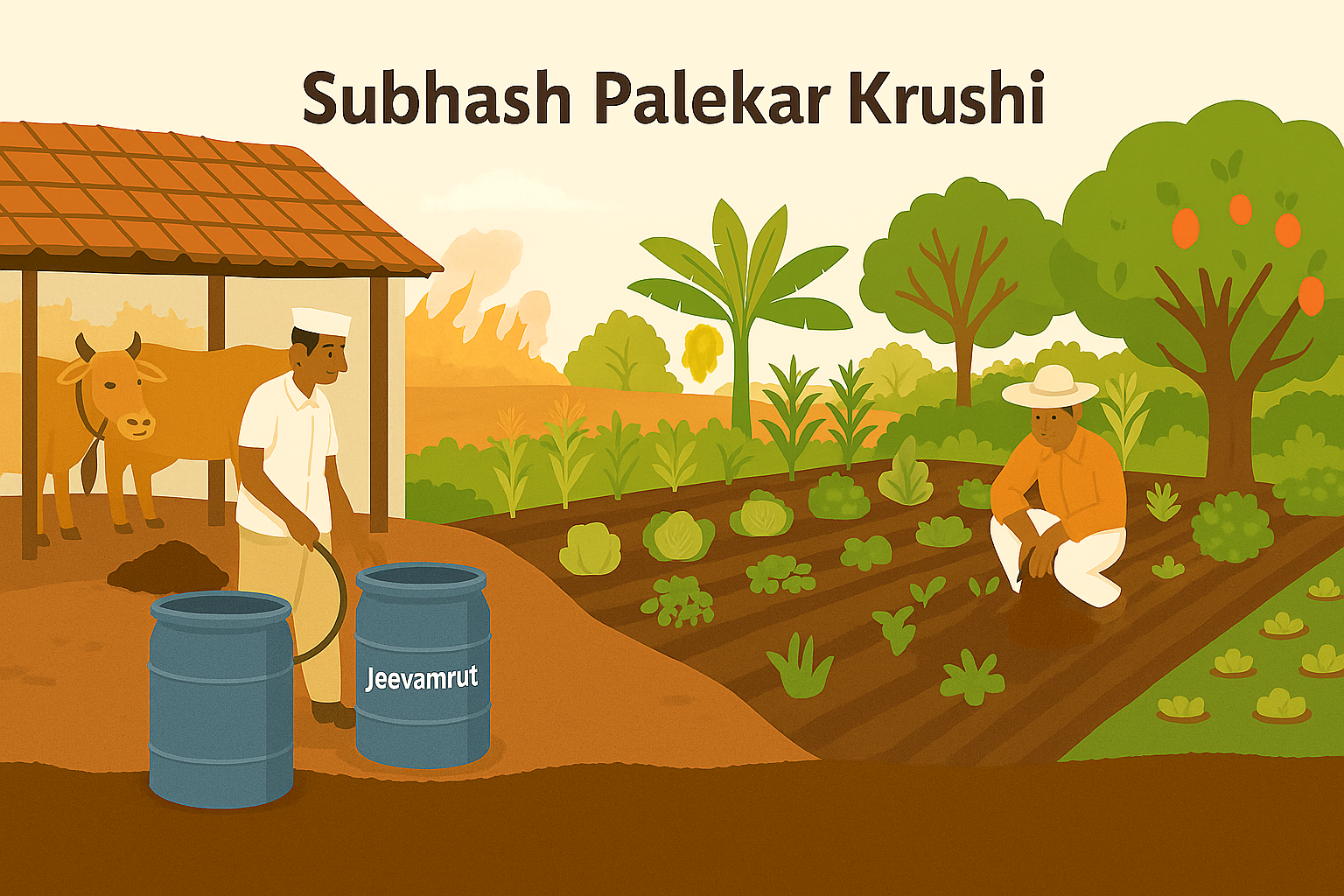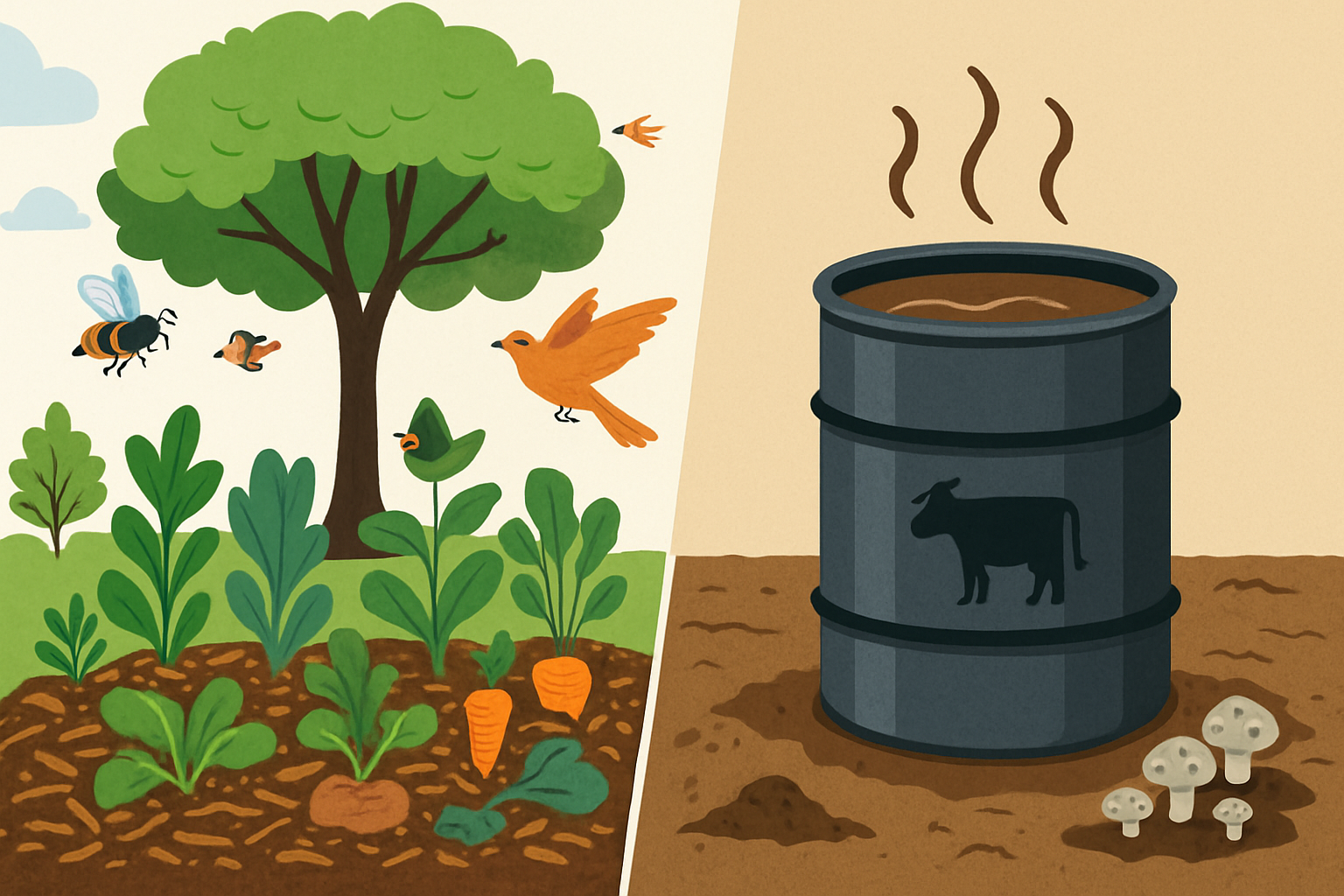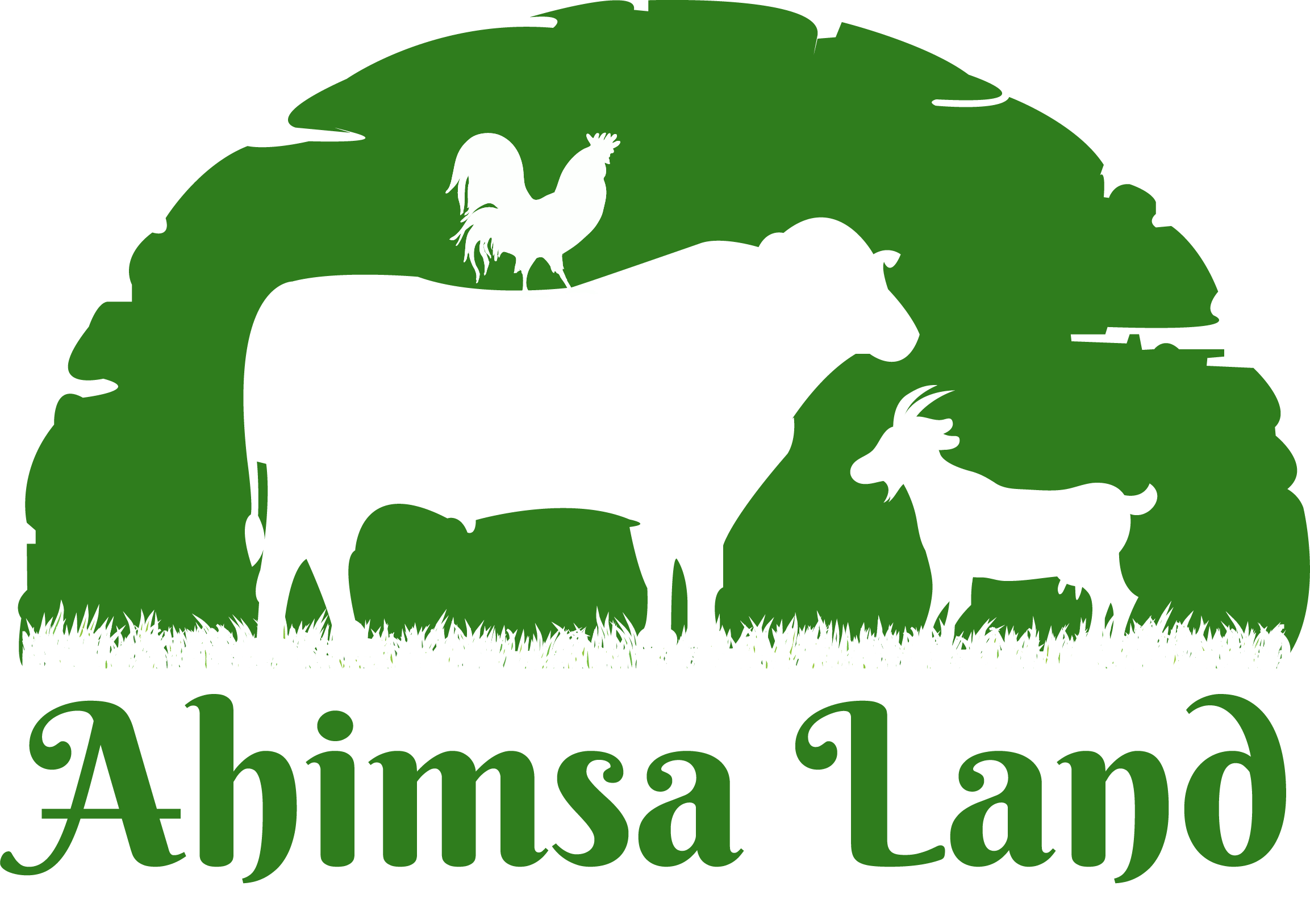
🧑🌾 What is Subhash Palekar Krushi?
Subhash Palekar Krushi (SPK), also known as Zero Budget Natural Farming (ZBNF), was developed by Padma Shree Subhash Palekar, a former agricultural scientist who began holding training camps across India in the early 1990s. His mission was to offer Indian farmers an alternative to the chemical-intensive farming that had devastated soil health and farmer well-being.
SPK draws inspiration from forest ecosystems and claims to regenerate land and empower farmers by eliminating external inputs.
🌱 Core Practices of SPK
- Multi-Cropping & Intercropping
Encourages crop diversity, mimicking natural ecosystems and boosting farm resilience. - Jeevamrut
A fermented microbial solution made from cow dung, cow urine, jaggery, gram flour, and soil — meant to revive microbial life in the soil. - Ghanajeevamrut
A solid, compost-like version of Jeevamrut used for enriching soil fertility. - Waphasa (Soil Aeration)
Maintaining balanced air and water vapor in soil for better root and microbial health. - Acchadana (Mulching)
Covering soil with organic matter (like leaves, crop waste, straw) to preserve moisture and protect microbial life.
🌾 Broader Principles Behind SPK
- No Chemical Inputs: Completely avoids synthetic fertilizers and pesticides.
- Use of Local & Indigenous Resources: Emphasis on native cows and materials available on the farm.
- Harmony with Nature: Farming that imitates how nature grows food.
- Soil Health as the Foundation: Focus on reviving and maintaining living soil.
- Less Water Use: Mulching and waphasa reduce the need for irrigation.
🐛 Pest Management in SPK
Instead of synthetic pesticides, SPK recommends herbal and cow-based sprays like:
- Agniastra – made from neem leaves, chilies, garlic, and cow urine
- Neemastra – neem-based pest control
- Brahmastra – a blend of multiple herbs and cow products
These are meant to be safer for the ecosystem, though they still rely on animal by-products.
⚠️ A Critical Look: Where SPK Falls Short
While SPK made a significant contribution in steering Indian farming away from chemicals, some of its practices do not align with nature’s true design.
🌳 Forests Don’t Use Jeevamrut
Natural ecosystems like forests maintain rich, fertile soil without any fertilizer inputs. Their secret? Continuous mulching from fallen leaves, twigs, and biodiversity. Soil microbes thrive naturally in this setup without any human intervention.
🦠 Cow Dung + Urine = Fungal Risk
Mixing cow dung and urine creates a moist, nitrogen-heavy environment that can trigger fungal overgrowth and damage long-term soil health, especially in overuse or monoculture settings. It also involves the high capital investment of buying indigenous cows and the continued investment in labour and feed.
🍂 Microbes Need Only Organic Matter
Soil microorganisms awaken when there is mulching, moisture (rain), and living roots. There’s no need for cow-based additives to activate life in soil because nature does this through plant material alone.
🌍 The Future: Ahimsak or Veganic Farming
Veganic farming goes one step further. It avoids all animal-based inputs and replicates how natural ecosystems truly function.
🌿 Benefits of Veganic Farming:
- Restores soil using mulching, composted plants, and green manure
- No harm to animals: it’s truly cruelty-free
- Boosts biodiversity and welcomes pollinators
- Requires less water due to improved soil structure
- Helps mitigate climate change through carbon sequestration
- Produces more nutrient-dense food by focusing on soil quality, not yield alone
✅ The Reality
Subhash Palekar Krushi helped shift India’s conversation away from chemical dependency. But the real key to sustainable, ethical, and regenerative farming lies in working with plants, not animals, and letting nature’s own methods: mulch, diversity, and time restore the land.
Veganic farming is the next evolution: it’s kind to the Earth, kind to animals, and nourishing for people.

